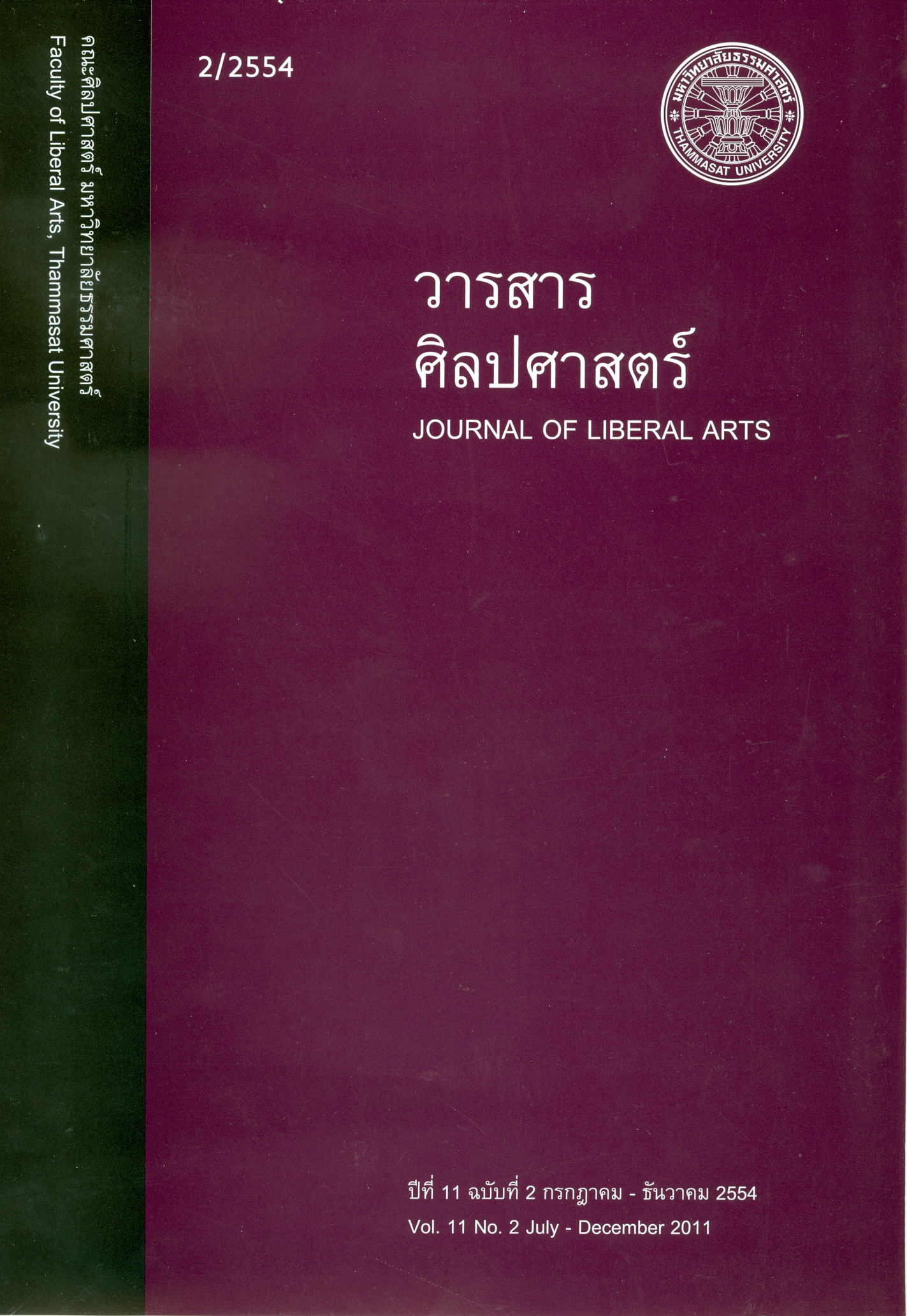รสวรรณคดีในบทกวีเดือนตุลา
Main Article Content
บทคัดย่อ
บทความนี้จุดมุ่งหมายที่จะวิเคราะห์บทกวีที่กล่าวถึงเหตุการณ์วันที่ 14 ตุลาคม พ.ศ.2516 และ 6 ตุลาคม พ.ศ.2519 ตามทฤษฎีรสของวรรณคดีสันสกฤต เพื่อแสดงให้เห็นการนำทฤษฎีรสมาวิเคราะห์บทประพันธ์ประเภทกวีนิพนธ์หรือบทเพลง โดยเฉพาะอย่างยิ่งวรรณคดีร่วมสมัย และเพื่อทำความเข้าใจความหมายทางอารมณ์ที่กวีถ่ายทอดไว้ในงานเขียนอันนำไปสู่ความเข้าใจความหมายของเหตุการณ์เดือนตุลาทั้งสองเหตุการณ์ จากการศึกษาพบว่าอารมณ์ความรู้สึกต่อเหตุการณ์ที่แตกต่างกันส่งผลให้กวีถ่ายทอดภาวะอารมณ์และเหตุการณ์ในลักษณะต่างกัน บทกวีทั้งสองชุดจึงก่อปฏิกิริยาทางอารมณ์ขึ้นในใจผู้อ่านแตกต่างกัน การแสดงภาวะความกล้าหาญ ความมุ่งมั่นของนิสิตนักศึกษาและประชาชนในเหตุการณ์14 ตุลาคม 2516 ทำให้ผู้อ่านได้รับวีรรส สอดคล้องกับความรู้สึกถึงชัยชนะ ขณะที่การแสดงภาวะทุกข์โศกต่อเหตุการณ์ 6 ตุลาคม 2519 ส่งผลให้ผู้อ่านได้รับกรุณารส สอดคล้องกับความรู้สึกถึงความพ่ายแพ้
This article aims to analyze poems representing the events of 14th October 1973 and 6th October 1976 through the use of the Sanskrit literary theory, Rasa. Rasa theory is used to show itself as a method of criticizing contemporary works and to reveal the emotional meaning embedded in these works. The results show that the poets and their works are affected by different emotional reactions to the events. This produces different reactions in the readers. The great courage of the rebels in the situation on 14th October 1973 makes readers feel a sense of vira, bravery, which is coincident with the feeling of victory. The mourning of the tragic happenings on 6th October 1976 makes readers feel karun, symphaty, which is coincident with the feeling of loss.


